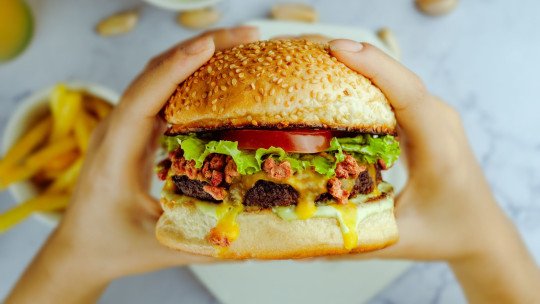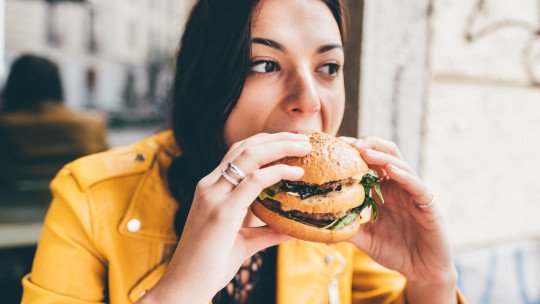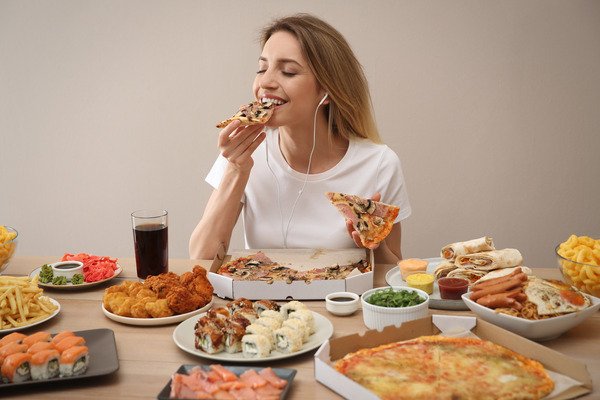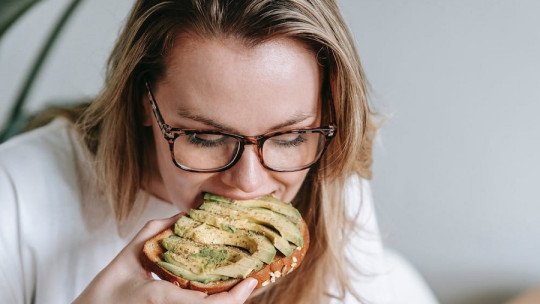
With the intention of freeing people from guilt who, in their ignorance, believe that the hunger response depends exclusively on them, in this article we analyze how our senses modulate our sensations of hunger Hunger does not depend solely on you, but there is a lot you can do to reverse the situation you find yourself in, you just need tools, and apply them. You cannot control your hunger (nor do I think it is desirable), but you can respect and regulate it.
Is it bad not to be able to control hunger?
This article is not for you to overanalyze, nor is it equivalent to the support or guidance of a health professional or doctor. When faced with a diagnosed pathology, I advise you to put yourself in the hands of a health professional. It is so that you understand that there are factors in the hunger response on which you can intervene and others, on which they do not depend on you You do not have complete control over your feelings of hunger, and pretending to have it will only bring you suffering and obfuscation.
Is it true that you don’t analyze the number of yawns you give per day or their duration? Is it true that you don’t control 100% the amount of water you need? Well, just as we don’t sweat the same every day, drink the same or have the same need for rest, hunger doesn’t feel the same every day. It is normal to be hungrier some days than others because many variables intervene on the signals that the body sends us.
It has been seen that animals and children (who have no idea about the subject, nor do they have to) in natural environments free of processed products intuitively choose those foods with minerals in which they were deficient. They eat on demand and do not overdo it; in fact, their taste even changes if they are suffering from an infection, feeling a greater preference for those foods that provide them with natural defenses
We also know that pregnant women suffer a change in taste that is evolutionarily explained because they were foods with a high risk of contamination before industrialization. If we lived wild in nature we would not need a guide, and innate intuition would work correctly. Let us not forget that human genes were forged in an environment of scarcity in which we did not always have access to food.
So much so that we could say that the current environment in which we live, where we have a high availability of adulterated foods (flavor enhancers, emulsifiers, artificial additives, flavorings, aromas, colorings…) works against us. These products interfere with the correct regulation of the centers responsible for controlling intake and therefore impair the spontaneous regulation of appetite. As an example, I present to you monosodium glutamate, an additive that, by enhancing the flavor, increases appetite by up to 40%, causing greater energy consumption This could be related to the action it has on the production of the hormone leptin.

The role of the senses in our relationship with food
If the stimuli coming from the senses and the environment did not influence us, human beings would only eat strictly to nourish themselves Luckily, human beings are capable of enjoying an aroma, the visual richness of a well-presented dish, the combination of different textures, etc. Let’s focus on how our senses can deceive us to know to what extent we can trust them.
But first, let’s clarify the following terms: Hunger is the biological sensation of need for nutrients. Appetite refers to a specific craving for a food. Satiety is the disappearance of the feeling of hunger, which is what will determine the time that passes between each meal. It depends on the volume and composition of the food ingested. Satiety defines the fullness that causes you to stop eating and put an end to a meal.
This depends on the time it takes to eat said food and the size of the portion. It would be the moment in which I get full and stop eating while satiety is the time I stay full between meals. Now yes, Can the senses modify the amount of food our body asks for?

Conclusions
In conclusion, it seems that with respect to food pleasure the most influential factors are those of the senses, although the rest of the factors mentioned also exert an influence. It has also been seen that the hedonic pathway (pleasure) has the capacity to suppress the homeostatic pathway (nutrients), which can lead to compulsive consumption even when hunger and appetite are present at low intensity.
This happens in certain people with binge eating disorder and food anxiety who may experience eating well beyond the point of satiety. Even genetics are involved in taste receptors and it may be that someone who does not consume a food is not because they do not make an effort because they like a certain vegetable but because it tastes much more bitter to them than it does to you. Hence, judgment and pressure around a table is not a useful tool for anything other than creating tension.
Regarding hunger, it not only depends on our will to control it because it is really not in our power other than to respect it. What we do have room for action on is the stimuli to which we decide to expose ourselves, at least in our homes and choose to take care of our environment by surrounding ourselves with foods that we choose for ourselves from love and self-care without judgment








